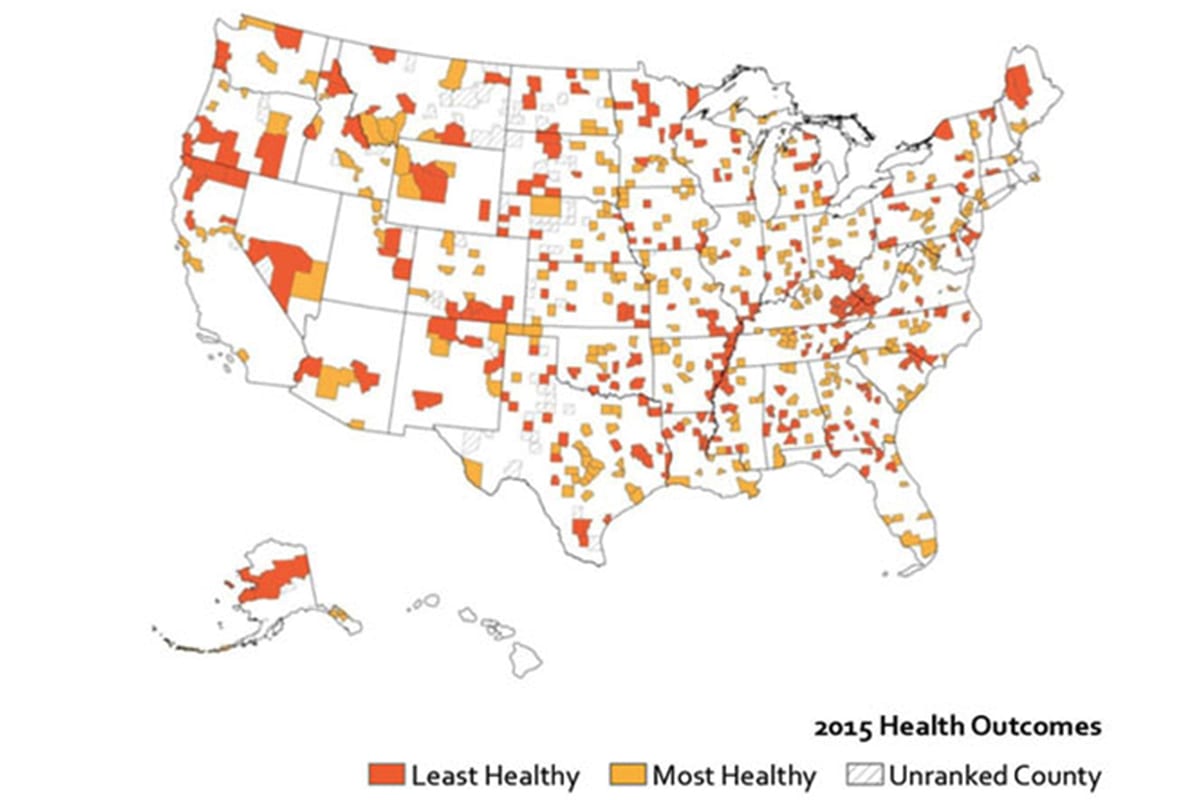Where You Live Matters to Your Health
By Jacqueline Bond, March 30, 2015

The Robert Wood Johnson Foundation (RWJF) and the University of Wisconsin’s Population Health Institute released the 2015 County Health Rankings, which shows that where you live influences how well and how long you live. The annual Rankings allow each state to see how its counties compare on 30 factors that communities have the ability to do something about – including education, jobs, violent crime, housing, diet and exercise.
Now in its sixth year, the Rankings show that the healthiest counties within states have fewer preventable hospital stays, higher college attendance, fewer sexually transmitted infections and better access to parks and gyms; while the least healthy counties in each state have lower high school graduation rates, more smokers, more teen pregnancies and more children living in single-parent households.
Educators, health officials, business leaders, policymakers, non-profits and citizens across the country use the Rankings to inform their united efforts to improve health.
To learn more, check out these articles:
Income Inequality: It’s Also Bad for Your Health – New York Times (Upshot)
The Health Profile of Every County in America, Mapped – Fast Co. Exist
Early Death Rates Dropping, but Not in Many Poor Areas – USA Today
These 10 U.S. Counties Vastly Improved their Premature Death Rates – Mashable
